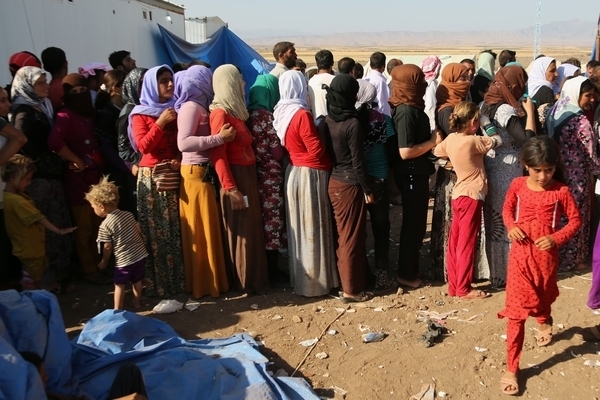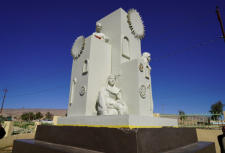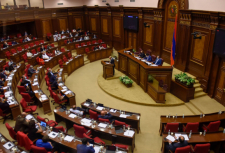Policy Options for Social Integration of Yezidi People in Europe: the Goal of a Society for All

Authors - Olga A. Vorkunova , Samvel Kochoi
Part-3
Market economies and democratic political institutions are generally known for reducing legal barriers to equality. However, in most societies, there are major limitations to the operation of these principles. Foremost among these are unequal access to earning opportunities, status factors, such as ethnicity, and other features of the system of social stratification. Social integration requires investment in social institutions and capital, enhancing social networks and relationships, building consensus, and generating individual, organizational and institutional capabilities especially for those living in exile or marginalized. Education reforms should not only expand the coverage of the educational system, but also improve its quality, equity of access, and the relevance of contents. The media also have an important role to play in fostering social integration. It is essential for the disadvantaged and post-genocide ethnic group to have access to the media for social integration. A coherent set of legislative measures and programs to strengthen the small business sector is needed. It may be useful to explore broad-based social policies and redistributive measures that can ensure a higher standard of living for those living in exile without jeopardizing their jobs. However, social integration is just the beginning and only part of the answer. We also have to cast aside some of our failed solidarity models and develop a new paradigm of social integration. The other part stems from redoubling efforts to provide education, training, and skills on demand to the Yezidi citizens of Germany and France. Both states identify the goal of universal and equitable access to quality education for all citizens. They committed themselves to the implementation of national strategies for universalizing basic education and improving the quality of education, ensuring also full and equal access to education for girls and women. Social stability depends also on the development of human capital, through public investment in basic education and health services including psychological assistance for the victims of the jihadist groups in Iraq.
Tags:
Policy Options for Social Integration of Yezidi People in Europe: the Goal of a Society for All

Authors - Olga A. Vorkunova , Samvel Kochoi
Part-3
Market economies and democratic political institutions are generally known for reducing legal barriers to equality. However, in most societies, there are major limitations to the operation of these principles. Foremost among these are unequal access to earning opportunities, status factors, such as ethnicity, and other features of the system of social stratification. Social integration requires investment in social institutions and capital, enhancing social networks and relationships, building consensus, and generating individual, organizational and institutional capabilities especially for those living in exile or marginalized. Education reforms should not only expand the coverage of the educational system, but also improve its quality, equity of access, and the relevance of contents. The media also have an important role to play in fostering social integration. It is essential for the disadvantaged and post-genocide ethnic group to have access to the media for social integration. A coherent set of legislative measures and programs to strengthen the small business sector is needed. It may be useful to explore broad-based social policies and redistributive measures that can ensure a higher standard of living for those living in exile without jeopardizing their jobs. However, social integration is just the beginning and only part of the answer. We also have to cast aside some of our failed solidarity models and develop a new paradigm of social integration. The other part stems from redoubling efforts to provide education, training, and skills on demand to the Yezidi citizens of Germany and France. Both states identify the goal of universal and equitable access to quality education for all citizens. They committed themselves to the implementation of national strategies for universalizing basic education and improving the quality of education, ensuring also full and equal access to education for girls and women. Social stability depends also on the development of human capital, through public investment in basic education and health services including psychological assistance for the victims of the jihadist groups in Iraq.
Tags:


























